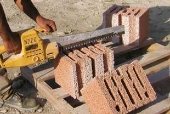Hi Ernie, this is way outdated but it's a shame more replies haven't chimed in. I'm reading through the old posts and its clear plenty of people are in want of information, and perhaps many more are in need but unaware of it.
Firstly, while few people will show up to a pyro workshop to hear about safety, Gary's right that it's first and foremost, and I would add to that legalities, even if it's presented with the attitude that we should learn the rules before we break them.
Secondly - and brevity isn't my speciality (which is why I like whole-day workshops) - while there's heaps of information about what you teach, you guys have an opportunity to deal with those things websites can't offer, which may include:
Experience - no one has the experience you guys have in your field, and many people (myself included) would attend your workshops to learn from the best. I would want to hear stories and examples of experiments which worked and failed.
Hands-on - get us making cob, get us putting together something simple, and if possible, inject some creativity into it so it can be another experimental design to talk to the next group about, to showcase, or for them to dismantle and remake.
Q&A - You're already doing this really well, fielding questions as you go, and while you're probably sick of answering the same questions, there's no quicker way to learn - when a person is ready to ask a question they are ready to hear an answer.
Design mentoring - this is an idea shown to me during a PDC course, where students went away with their newfound knowledge and each had to come back with a design, which was then openly discussed by the group and critiqued by the teachers. I'm thinking this could lead into the group building a mock up of the best voted design.
Well prepared notes to take home - A one-time effort to condense your knowledge can be copied and copied (and revised) and copied, and kept by each person who comes through your course for times when their ready to revisit and remember what they learned. It's difficult to measure how valuable this can be.
Finally, inviting people into the local RMH community - hermits like me need a poke and a prod sometimes to get involved and connected with like-minded others. By the end of a course, if run with this communo-centric view, we can find ourselves volunteered already, and may stay in touch and build community together.
I'm sure much of that has already crossed your mind, and many may have been experimented with, but I hope there's some crumbs worth chewing on in there.
All the best
Shaun of Kingsley, Western Australia







